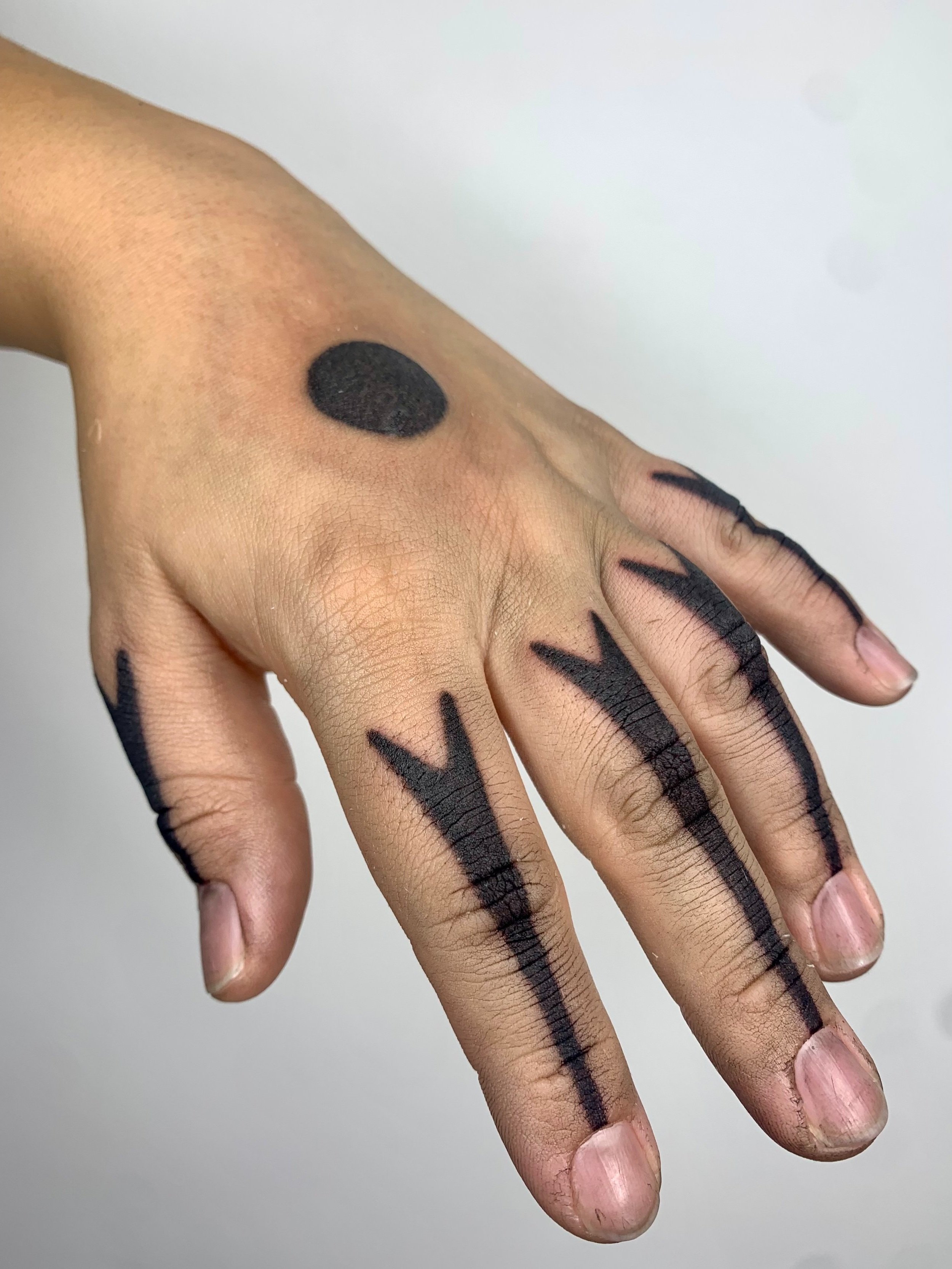hajichi
はぢち
ハヂチ
Hajichi is the Okinawan word for cultural tattoos of the Ryuukyuu/Ruuchuu Islands (now known as Okinawa prefecture in Japan due to colonization). Other Ryukyuan languages have different words for the practice: Pajichi, Hazuki, Hanzuki, Pizutsuku, Paitsuki, Tiku, Tishiki, etc. The styles and meanings vary based on the island.
They were traditionally tattooed mostly by women and intended for women—usually located on the hands, wrists, and sometimes arms. These tattoos have various social and spiritual purposes: protection when entering the afterlife, markers of important life events (like marriage or having children), protection from Japanese colonizers, etc. Women usually started receiving their first pieces of hajichi in early childhood and slowly acquired more symbols throughout their lifetime as important events occurred.
Part of my tattoo practice now focuses on reviving this endangered practice (it was outlawed in 1899). I tattoo these symbols for women/genderqueer individuals of Okinawan/Ryuukyuuan descent. I am also part of an international collective of hajichaa (hajichi practitioners) on Instagram: @hajichiaa






